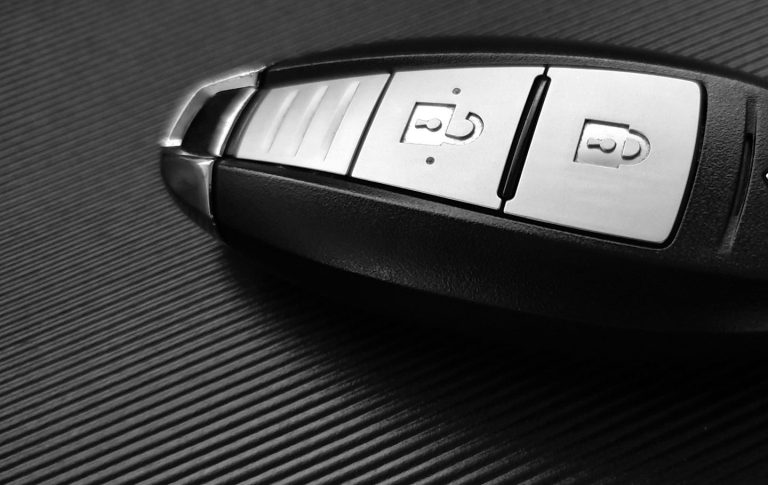AUTO LOAN VS. LEASING:
WHAT IS THE BEST FOR YOU?

Introduction
Deciding between buying a car with a loan or leasing one can be tricky. Each option has its advantages and trade-offs.
In this guide, we’ll break down the differences, compare costs, and give real-world advice to help you make the best decision for your needs.
What is an auto loan?
An auto loan is a standard way to purchase a vehicle. You borrow money, pay it back in monthly installments plus interest, and once it’s fully paid, the car is yours.
Pros:
- You own the car outright at the end
- Unlimited mileage and full customization
- You can sell/trade anytime
Cons:
- Higher monthly payments
- Responsible for all maintenance after warranty
- Risk of negative equity if the car depreciates faster than you pay it
What is leasing?
Leasing is essentially long-term renting. You pay for the car’s depreciation over a set term (usually 2–4 years) plus interest, then return it or buy it at the end.
Pros:
- Lower monthly payments than loans
- Drive a new car every few years with the latest features
- Often included maintenance/warranty
Cons:
- You don’t build equity
- Mileage limits and wear-and-tear fees
- Changing or ending the lease early can be costly
Cost comparison:
Head-to-head
Monthly payments
Leases are typically lower — on average €300/month for non-luxury vs. €450 for loans.
Total cost
Over time, owning can be cheaper. Long-term loans accrue more interest, and if you keep a car beyond loan payoff, loan becomes free ownership.
Example (Germany)
A Ford Fiesta over 36 months – lease costs €6,164; loan costs €13,914.
Loans
At the end, you fully own the car — no more monthly payments.
Leases
You must return the car or buy it at retention value. No equity built.
Mileage & customization
Loans allow free driving and modifications. Leases restrict both, and violations are penalized.
Ownership, equity & flexibility
Insurance & maintenance
Auto Loans
You're on your own — pay for maintenance after warranty, can shop for insurance.
Leases
Often include scheduled maintenance and require higher insurance; wear fees may apply.
Leasing electric vehicles (EVs)
Electric cars are generally exempt from vehicle tax until 2030.
Furthermore, the leasing rate is often lower than for combustion engines.
Companies also have numerous tax deduction options.
Risks of long-term loans
Opting for longer loan terms (e.g., 96 months) lowers monthly bills but increases total interest and risk borrowing more than car’s value — leading to negative equity.
Real expat perspectives
Reddit users in Germany note that leases appeal to those wanting new cars or tax deductions, while financing suits those who prefer equity and no mileage limits.
One user advises:
“Leasing is only interesting for those who want or need a new car…
There is not much benefit to it I find.”
Choosing what’s right for you
You may prefer leasing if:
- You want a new car with lower monthly costs
- You drive below mileage limits
- You lease for business or lease EVs for tax benefits
Loans are better if you:
- Plan to keep a vehicle long-term
- Drive a lot or want to customize
- Want full ownership and resale options
Additional considerations
- Tax & business use
Leasing often offers tax deductions for business. - Lifestyle flexibility
Leases lock you in, which can be limiting if you relocate or change needs . - Environmental factors
High EV leasing uptake due to lower EV loan rates and credits.

Actionable planning
- Set clear goals
Ownership vs convenience?
Long-term vs short-term? - Run the numbers
Use calculators to compare total costs. - Check credit score
Influences loan rates more; leasing credit checks matter less. - Negotiate deals and terms carefully
Include end-of-lease, early termination, and mileage limits. - Plan upkeep
Budget for post-warranty repairs (loan) or wear charges (lease). - Know exit strategies
Loan gives resale flexibility; leases may need buy-out clauses.
Conclusion
There’s no universal “best.”
- Lease for flexibility, lower monthly costs, and newer models — but no equity.
- Loan for full ownership, freedom, and long-term savings — though with higher monthly costs.
The ideal option depends on your priorities, driving habits, and long-term plans.
Want me to expand this into a 3,000‑word blog with tables, visuals, and deeper data? Just say the word!
Whether you’re leaning towards ownership with an auto loan or flexibility with a lease, the key is making an informed decision that fits your lifestyle and budget.
- Run the numbers.
- Compare offers.
- Check your credit score.
Don’t commit without clarity — get personalized auto loan and lease quotes today and drive away with confidence!
Contact us
Monday to Friday: 9:00 AM – 6:00 PM
or by prior arrangement
Saturday & Sunday: Closed
Phone: +49 (0) 176 830 913 97
Email: kontakt@dkfinance.eu
